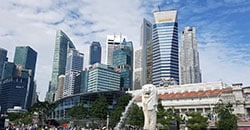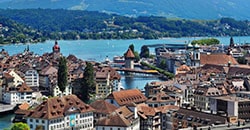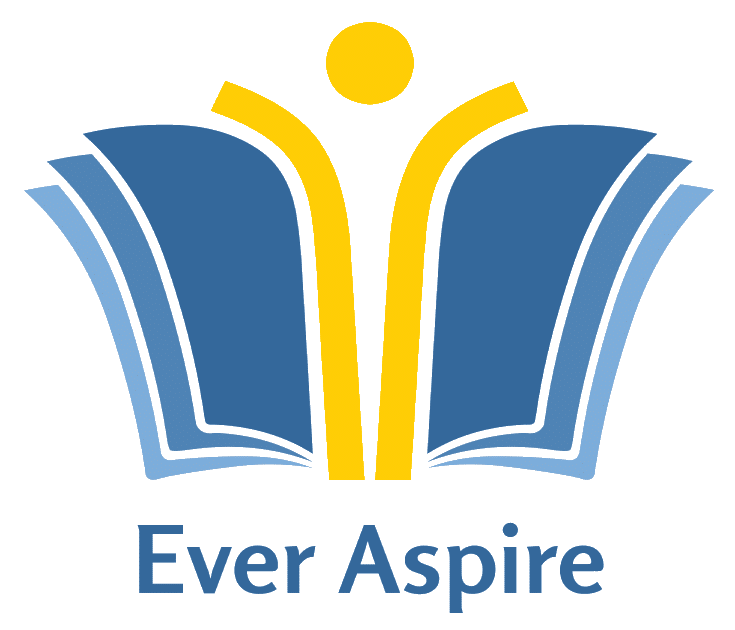+918657454590 | [email protected]
Study Abroad > Study in Denmark
Why study in Denmark

Education System in Denmark
Denmark's education system is highly ranked. The Universitas 21 Ranking, which is the only one in the world that looks at national higher education systems, says that Denmark has the third-best higher education system in the world.
The education system in Denmark is a combination of both public and private schools, with about 15% of students attending private schools. Public education is free, from primary to higher education. Compulsory education is up to the 9th grade of primary school, but more than 80% of students go on to study at higher levels. The education system is divided into two cycles: pre-school, primary and lower secondary schools (Folkeskole) and upper secondary education, followed by a degree in higher education.
In Denmark, there is an ordinary education system for children and a separate one for adults, which is focused on people aged 18 and above and makes it possible for them to acquire new skills and diplomas. The ordinary Danish education system follows the two-cycle model, which is similar to the rest of Europe and divides study into undergraduate (Bachelors) and postgraduate (Masters and PhD/Doctorate.
The Roman Catholic Church started cathedral and monastery schools in the early Middle Ages. Seven of these schools still exist today. After the Reformation in 1536, the schools were taken over by the Crown. Danish education does not stop with graduation, as one out of three Danish adults, aged 25–64, is taking some kind of continuing education course. Many Danish workplaces pay for their employees' additional training, and there are also public and private providers of classes that help build business and professional skills.
Intakes
Most universities and colleges in Denmark offer two intakes, the fall and spring intakes. The fall intake usually starts in September and ends in December, while the spring intake begins in January and ends in May. Some universities and colleges also offer a minor intake in the summer that starts in April.
Popular Programs
Denmark is a gold mine for students wishing to study history, anthropology, geography, the social sciences, and many more.
Denmark offers more than 600 programmes in various fields, including short-term courses, summer schools, and maritime training programs. There are over 350 English-taught programmes in Denmark, and universities in Denmark require students to have good English language skills.
It is recommended to check with the specific universities in Denmark to know more about the popular courses they offer for international students.
Popular Programs
Denmark is a gold mine for students wishing to study history, anthropology, geography, the social sciences, and many more.
Denmark offers more than 600 programmes in various fields, including short-term courses, summer schools, and maritime training programs. There are over 350 English-taught programmes in Denmark, and universities in Denmark require students to have good English language skills.
It is recommended to check with the specific universities in Denmark to know more about the popular courses they offer for international students.
Tuition and Living costs
International students studying in Denmark can expect to pay tuition fees between USD 8,000 to 21,000 (or Euro 6,000 to 16,000) per year, depending on the institution and the program of study. For exact fees, it is best to contact the institution in question.
As for living expenses, international students should budget for 800 - 1,200 EUR per month in Denmark. These costs can vary based on individual spending habits and location, with higher costs in the capital city, Copenhagen.
Looking for an education loan to finance your Denmark study abroad plans? Contact us to get the best and fastest education loan offers from multiple loan providers.Scholarships
There are various scholarships available for international students who wish to study in Denmark. The following is a summary of the information provided in the web search results:
Student Accommodation
Housing options for international students in Denmark include student dorms and halls of residence, apartments and houses for rent, and subletting from Danish students or landlords. Some universities, such as the University of Southern Denmark, provide guaranteed housing for all international full-degree and exchange students.
The average cost of housing in Denmark ranges from DKK 2500 to DKK 4500, including utilities. This can vary, though, depending on the type of housing and where it is. In Copenhagen, rooms usually start at DKK 4000 and go up from there. Utilities like internet, water, electricity, and heat are usually included in rent, but this depends on what the renter agrees to.
International students can find housing through university services like AU Housing at Aarhus University. Choose between different types of housing, including studio apartments for those who prefer living alone and university apartments for those who prefer sharing an apartment with others.
In Denmark, most students and staff don't live on campus. Instead, they live off campus and commute to and from campus. Most of the rooms allocated through university housing services, such as AU Housing, are located within 30 minutes of travel from campus
To book your off campus student accommodation in Denmark, contact us.Criteria for Admissions
Following are the requirements for international students to study in Denmark: a high school diploma, proof of language proficiency in English (IELTS or TOEFL), assessment of qualifications, proof of nationality, a university application or registration form, an application fee (generally: 100 EUR), copy of grades, and a student visa or residence permit.
There are no SAT/ACT requirements for undergraduates, and there are no GRE/GMAT requirements for graduates. The application process is fairly simple.
Documents for Admissions
International students who want to study in Denmark must provide several documents when applying for admission. The documents required vary depending on the level of education (bachelors, masters, PhD, or short-cycle professional higher education) and the institution.
Students will need their high school diploma, proof of citizenship, academic transcripts, and a qualifying entrance exam to get in.
Students who did not take their qualifying exams in Denmark have until March 15 to send in their applications for bachelor's degree programs there. The program starts on September 1st, and the deadline for applicants with Danish qualifying examinations is July 5th.
Applicants with foreign or international qualifications must have their certificates on the same level as a Danish upper secondary school leaving certificate. For short-cycle professional higher education, a certificate that is the same as a relevant Danish vocational qualification may be enough.
For admission to programs in Danish, students must prove their proficiency in Danish by taking the Study Test of Danish as a Foreign Language or the Danish Test 2. Some programs may have additional admission criteria, such as specific subjects or levels.
For further information and guidance, international students can contact the International Admissions Office at the DTU Career Center. They offer guidance on the application process for students with a bachelor's degree from outside of Denmark.
International students who have completed their studies in Denmark have multiple possibilities to stay and work in the country. Non-Nordic, non-EU, non-EEA, and non-Swiss citizens can work in Denmark for up to 20 hours a week and full-time during June, July, and August. However, this requires a work permit sticker in their passport.
International students are entitled to work while they are living in Denmark. They are also eligible for full-time employment after completing their studies. Many international students have chosen to start their careers in Denmark after graduation. International students are granted a Short-Term Visit Pass after their student pass has expired, giving them 90 days to look for employment. The post-study work permit duration is one year for international students.
It's important to remember that you need a permit to work in Denmark, even if you're from the Nordic, EU/EEA, or Switzerland. If you still want to get financial support (SU) while you're working, there are some limits.
Study Abroad Countries


 IELTS
IELTS




















